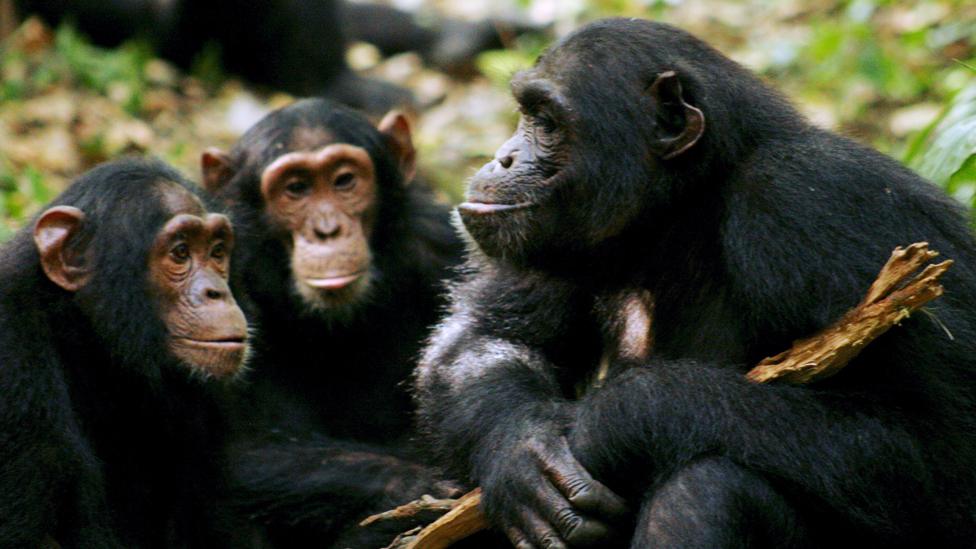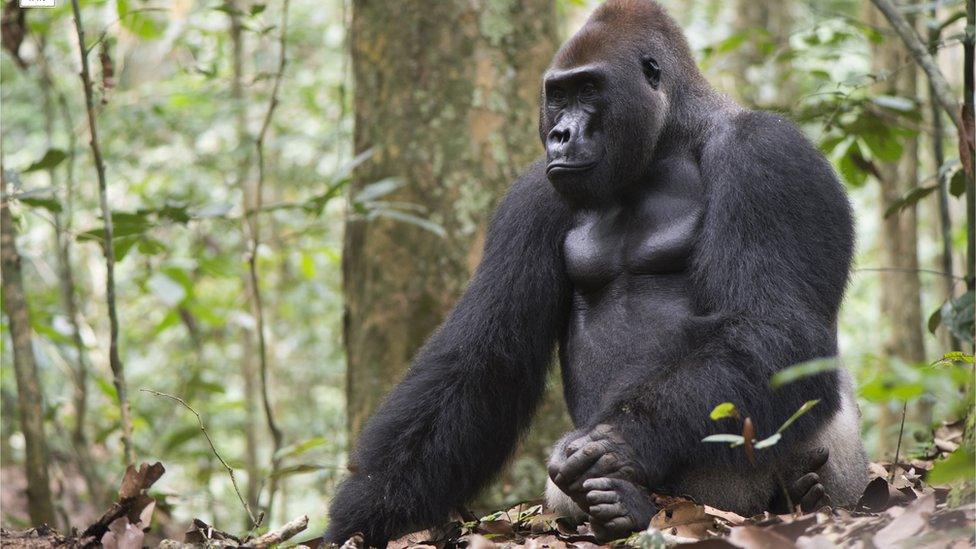Great apes deliberately spin to become dizzy, say researchers
- Published
Great apes 'spin deliberately' university research finds
Great apes deliberately spin themselves around to make themselves dizzy, researchers have said.
The behaviour could provide clues as to why humans had evolved the desire to seek altered mental states, a University of Warwick scientist said.
It raised the possibility this trait came from our ancestors, he added.
Academics studied videos of gorillas, chimpanzees and orangutans spinning themselves round and round to reach their conclusion.
"If this was indeed the case, it would carry huge consequences on how we think about modern human cognition capacities and emotional needs," said Dr Adriano Lameira, associate professor of psychology at Warwick, who co-led the study.
The research team studied a viral video of a male gorilla spinning in a pool and other online videos of apes engaging in spinning behaviours.
The analysis found the apes spun an average speed of 1.5 revolutions per second. In many of the videos, the primates used ropes or vines to spin, and it was in these they spun the fastest and for the longest amounts of time.
"Spinning alters our state of consciousness, it messes up with our body-mind responsiveness and coordination, which make us feel sick, lightheaded, and even elated as in the case on children playing in merry-go-rounds, spinner-wheels and carousels," said Dr Lameira.
He continued: "If all great apes seek dizziness, then our ancestors are also highly likely to have done so.
"We asked ourselves what role these behaviours play when it comes to the origins of the human mind."
The apes were doing it purposefully, as if dancing and the parallel between human and ape behaviour was beyond coincidental, he said.
The apes were noticeably dizzy by the third bout of spins and were likely to lose their balance and fall.
"This would indicate that the primates deliberately keep spinning, despite starting to feel the effects of dizziness, until they are unable to keep their balance any longer." said Dr Marcus Perlman, of the University of Birmingham, who co-led the study.
Further research was needed to understand primates' motivations for such behaviour.
"There could be a link to mental health here, as the primates we observed engaging in this behaviour were mostly captive individuals, who may be bored and trying to stimulate their senses in some way," Dr Lameira said, adding it could also be a "play behaviour".
The research was published in Primates magazine.

Follow BBC West Midlands on Facebook, external, Twitter, external and Instagram, external. Send your story ideas to: newsonline.westmidlands@bbc.co.uk
Related topics
- Published25 January 2023

- Published20 December 2022

- Published26 April 2018
